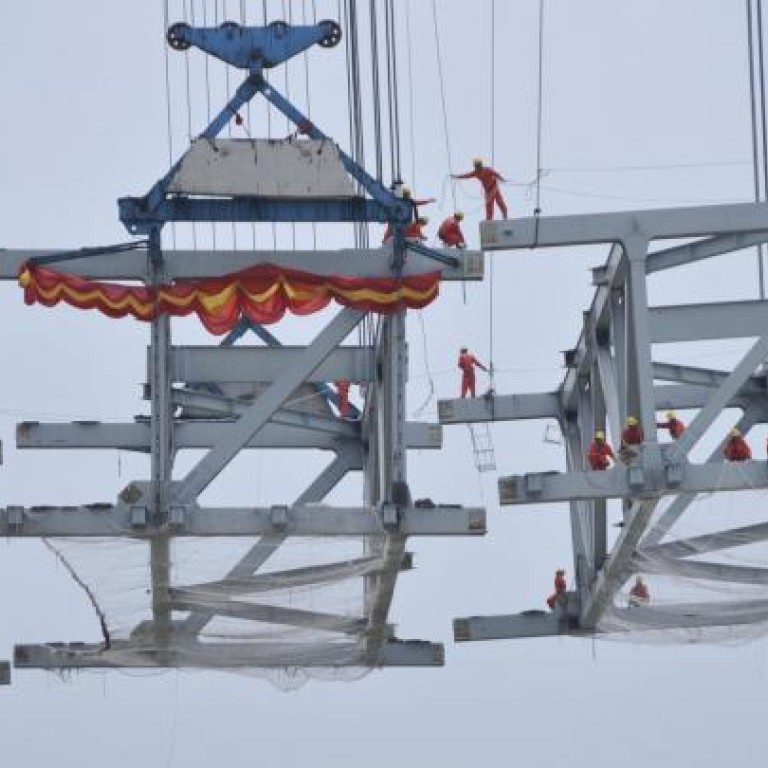
Mainland provinces plan building spree to counter economic slowdown
Hubei, Henan, Jiangsu, Gansu and Anhui to spend 400 billion yuan mostly on expressway projects to counter economic slowdown
Hubei, Henan, Jiangsu, Gansu and Anhui provinces will spend 400 billion yuan (HK$491.3 billion) on infrastructure projects in the next few years, mostly on roads.
"China plans to accelerate infrastructure investment to offset the slowing economy. The country needs to spend 800 billion to 1.5 trillion yuan to get the economy back on track," said a report from investment banking group CLSA.
"The government miscalculated by how much the economy would slow down," said Francis Cheung, CLSA's managing director of China-Hong Kong strategy.
In prospectuses to bond issues to finance its investments, Hubei Provincial Communications Investment, an infrastructure firm wholly owned by the Hubei government, said it would invest 102.5 billion yuan to build 1,628 kilometres of roads and 36km of railways from this year to 2015.
Jiangsu Communications Holding, an infrastructure firm controlled by the Jiangsu provincial government, said it would invest 81 billion yuan in building expressways and 16 billion yuan in railway links in the next five years.
Anhui Expressway Holding Group, wholly owned by the Anhui government, will build expressways with an investment of 37.3 billion yuan from last year to 2014.
Henan Transport Investment Group, wholly owned by the Henan government, will spend 14 billion yuan to continue six highway projects from this year to 2014. It will also invest 9.49 billion yuan on a new expressway from 2012 to 2017.
From last year to 2015, the Gansu Provincial Highway Aviation Tourism Investment Group, wholly owned by the Gansu government, will invest 131 billion yuan on highways, 7.2 billion yuan on airports and 1.6 billion yuan on tourism projects.
Earlier this month, the National Development and Reform Commission approved more than 1 trillion yuan of infrastructure projects including metro railways and 2,018km of roads. This week, Xu Lin, the head of the commission's planning department, said further infrastructure projects would be approved.
"In an economic slowdown, the government has to take some counter-cyclical measures. China still has large demand for infrastructure projects," Xu said.
The country's highway debt is as much as 5 trillion yuan - 2.5 trillion yuan borne by companies and 2.5 trillion yuan by local government financing vehicles, CLSA said.
"China's large spending has increased its debt level, higher than many originally estimated, but remains manageable," it said.
Although there was excess capacity in many infrastructure sectors, this would not lead to a major crisis, it added, since the central government's balance sheet remained strong.
"The highway network is becoming mature. The recent change in toll policy may hold back the private sector from investing in toll roads in [mainland] China," HSBC analyst Anderson Chow said.
Recently, the State Council announced a new policy under which cars with seven or fewer seats will enjoy toll-free access on highways for 20 days each year. HSBC estimates this policy will reduce earnings of expressway firms by 6 to 13 per cent next year.

